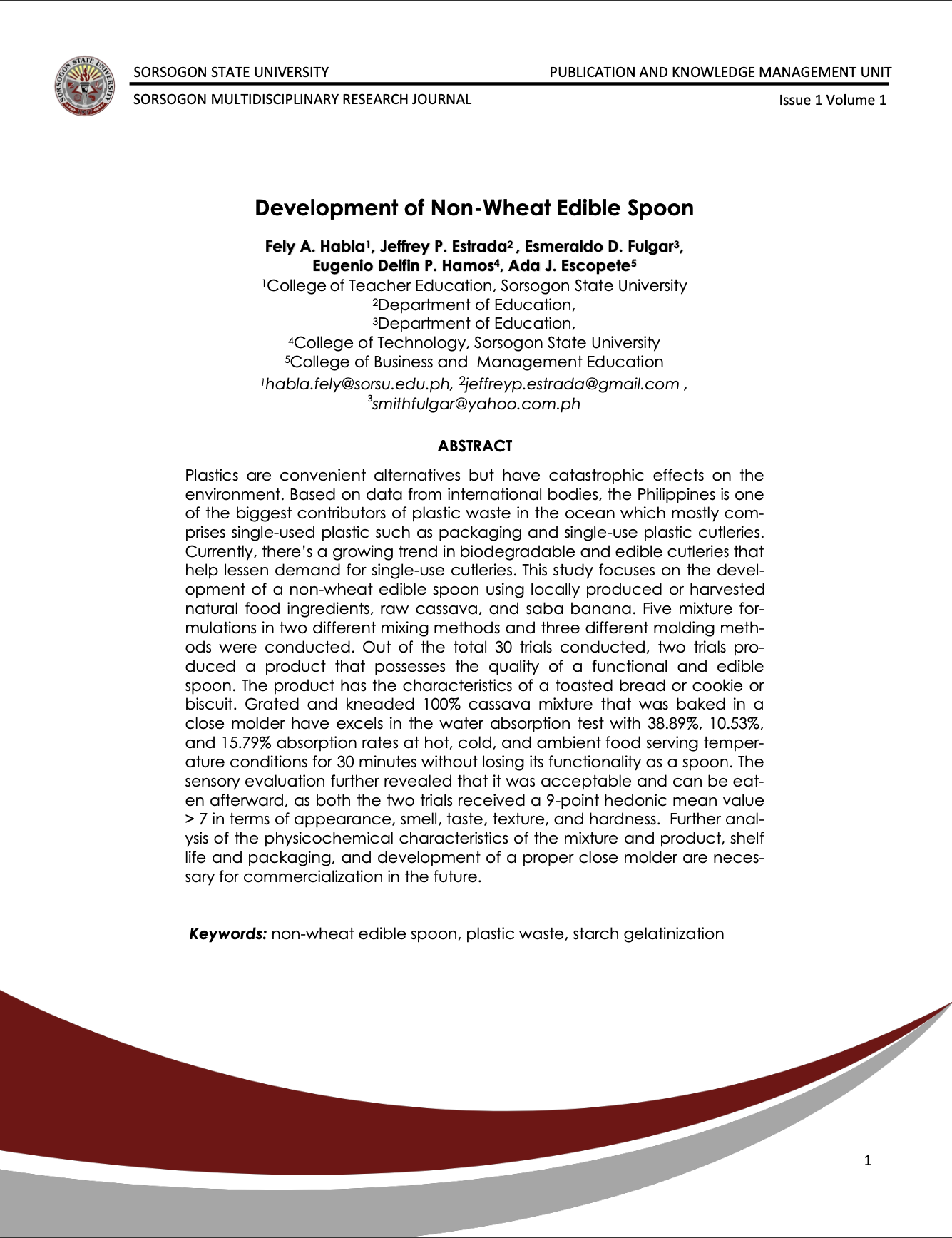Abstract
Plastics are convenient alternatives but have catastrophic effects on the environment. Based on data from international bodies, the Philippines is one of the biggest contributors of plastic waste in the ocean which mostly comprises single-used plastic such as packaging and single-use plastic cutleries.
Currently, there’s a growing trend in biodegradable and edible cutleries that help lessen demand for single-use cutleries. This study focuses on the development of a non-wheat edible spoon using locally produced or harvested natural food ingredients, raw cassava, and saba banana. Five mixture formulations in two different mixing methods and three different molding methods were conducted. Out of the total 30 trials conducted, two trials produced a product that possesses the quality of a functional and edible spoon. The product has the characteristics of a toasted bread or cookie or biscuit. Grated and kneaded 100% cassava mixture that was baked in a close molder have excels in the water absorption test with 38.89%, 10.53%, and 15.79% absorption rates at hot, cold, and ambient food serving temperature conditions for 30 minutes without losing its functionality as a spoon. The sensory evaluation further revealed that it was acceptable and can be eaten afterward, as both the two trials received a 9-point hedonic mean value > 7 in terms of appearance, smell, taste, texture, and hardness. Further analysis of the physicochemical characteristics of the mixture and product, shelf life and packaging, and development of a proper close molder are necessary for commercialization in the future.

This work is licensed under a Creative Commons Attribution 4.0 International License.
Copyright (c) 2023 Multidisciplinary Research Journal




